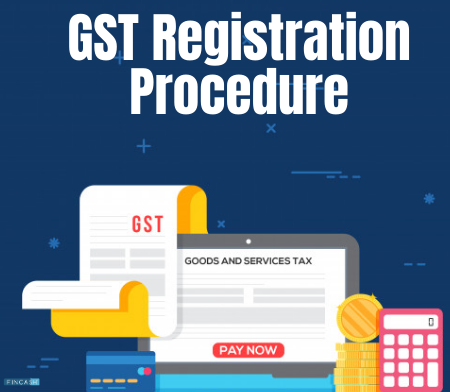Discover Why CFO Account & Services is Your Finest Choice for GST Registration in Singapore
From Beginning To End: A Thorough Overview of GST Registration and How to Effectively Register Your Business
Browsing via the elaborate process of GST enrollment can be an essential action for any company wanting to establish conformity and authenticity on the market. Why choose CFO Account & Services for GST registration in Singapore. From recognizing the fundamental ideas of GST to meeting the eligibility standards and collecting the necessary paperwork, the trip towards successful enrollment can usually feel like a challenging task. Nevertheless, with the ideal advice and insights, companies can simplify this process and unlock the benefits that include being a registered entity.
Comprehending GST and Its Significance
Comprehending the Goods and Services Tax Obligation (GST) and its importance is necessary for organizations operating in economies where this taxes system is carried out. By enabling businesses to assert input tax obligation credit reports on the tax paid on acquisitions, GST makes certain that tax obligations are determined only on the worth added at each stage of the supply chain.
Furthermore, GST advertises compliance and openness in the tax regimen, minimizing tax obligation evasion and boosting federal government income. It streamlines tax administration and conformity for businesses by supplying a common platform for tax obligation declaring and payment. Generally, an extensive understanding of GST is crucial for services to effectively browse the intricacies of the tax system and make sure conformity with the legislation.
Eligibility Standards for GST Registration
To register for GST, businesses must satisfy particular eligibility requirements described by the tax authorities. The main need for GST enrollment is that the business's accumulated turnover exceeds the limit set by the government, which differs by state. In addition, particular businesses, such as those involved in inter-state supply of items or solutions, informal taxed persons, and non-resident taxed individuals, are needed to sign up for GST regardless of their turn over.
Additionally, businesses associated with supplying goods or services with e-commerce systems are additionally mandated to register for GST, irrespective of their turnover. Companies that were registered under the previous tax obligation regime, such as Barrel, excise duty, or solution tax, must shift their enrollment to GST. Following these eligibility criteria is crucial for organizations looking for to adhere to the GST regulations and stay clear of any charges for non-compliance.
Papers Needed for GST Registration
When looking for GST registration, businesses should ensure they have all the essential records in order to complete the process smoothly and successfully. The essential files needed for GST registration include evidence of organization enrollment or incorporation such as the Certificate of Incorporation, collaboration act, or registration certification. Furthermore, services require to give proof of address for the principal workplace, which can be sustained by files like an energy expense or a rental arrangement.
Furthermore, records confirming the identity and address of the promoters or partners associated with the organization, such as PAN card, Aadhaar card, or key, are essential for GST registration. Savings account statements or canceled cheques displaying the name of the account, address, and business number are likewise required to verify the bank account information supplied during enrollment.
Guaranteeing all the necessary records are in order and readily available will simplify the GST registration procedure and assistance services stay clear of difficulties or hold-ups.
Online Registration Refine for GST

After completing the kind, supporting files require to be uploaded according to the guidelines given. These records normally consist of evidence of business registration, address proof, financial institution statements, and identification evidence of the organization owner. It is necessary to guarantee that all files are clear, valid, and posted in the specified style to avoid delays a knockout post in the enrollment process.
Once the application and files are sent, businesses can track the condition of their GST enrollment online. If there are no problems or extra details called for, the GST enrollment certificate will be released digitally, marking the successful completion of the on the internet registration procedure.
Post-Registration Conformity and Tips

Businesses must remain upgraded on any type of changes in GST policies, rates, or compliance procedures to make essential modifications without delay. Looking for expert support from tax professionals or accounting professionals can also aid organizations navigate complex GST compliance needs effectively.
Final Thought
To conclude, the procedure of GST registration is necessary for companies to abide by tax regulations and run lawfully. By recognizing the eligibility criteria, collecting the required documents, and finishing the on-line enrollment process, organizations can efficiently sign up for GST. It is necessary to remain certified with post-registration needs and seek professional advice when required to make certain smooth operations.
Organizations that were signed up under the previous tax obligation regimen, such as Barrel, excise obligation, or solution tax obligation, have to transition their enrollment to GST. The essential files required for GST enrollment include proof of service enrollment or incorporation such as the Certification of Incorporation, collaboration action, or registration certificate.Upon successful conclusion of the GST enrollment procedure, businesses have to quickly stick to post-registration compliance requirements to keep regulatory conformity and make sure smooth procedures.In conclusion, the procedure of GST registration is vital for companies to comply with tax policies and run click over here legally. By comprehending the eligibility criteria, collecting the necessary files, and finishing the online enrollment process, organizations can successfully sign up for GST.